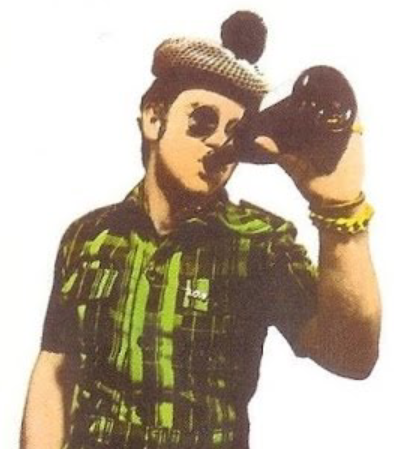I’ve been curious how many working researchers we’ve got in this community, and what you all do!
If you’re working in science (physical or social), engineering, etc in a research capacity, give a shout in the comments and let us know what you work on! Same goes for students and amateur scientists at any level. (And by amateur I mean those of you who are working on your own experiments but just not being paid for it / not working on a degree; I’m upset that “amateur” has a negative connotation, it shouldn’t.)
I’m currently a PhD candidate, working on transmission electron microscopy and electronic materials (mainly ferroelectrics). In the past I’ve been involved in research / product development in a few different industries, including medical devices, aerogels, and materials for RF devices.
I’m a PhD candidate too - my contract is finished now, but I am still writing my thesis. So I am currently at the awkward intersection of finishing a thesis and looking for a job.
My PhD focus is in applying time-resolved spectroscopic techniques to study the excited state dynamics of molecules. Basically, these are experiments in which a pulsed laser is used to excite the sample and a second probe light is used to measure a change in the absorption in response to the light. By measuring these changes in the absorption as a function of time, and applying quantum chemical methods to calculate the spectra of potential intermediates, one can sort of recreate a molecular movie of what the molecule is doing after it absorbs light with a time resolution of femto to picoseconds. The materials that I study are organic dyes that are useful for microscopy, as well as molecules that respond to EUV light for applications in photonanolithography (for making the very small transistors in computer chips).
I am also an “amateur” scientist when it comes to biology, as many of my hobbies are nature-based and it’s not like I can turn off the science bug when it comes to hobbies.
Well that’s fascinating! The technique sounds a little bit like a cross between Raman and EXAFS/XANES? (Probably just because those are two techniques I happen to be familiar with though.)
It’s science-y enough but I’m definitely not considered a scientist so much as a technologist. I work as a MRI (Magnetic Resonance Imaging) Technologist. Previously a X-Ray Technologist.
My machine does all the science for me but it’s a pretty neat concept. Using magnetic gradients and RF pulses at hydrogen protons to acquire accurate digital imaging.
Happy to have you! The science behind MRI is fascinating, and the machines themselves are really cool. Have you ever seen a magnet quench? I don’t think they’re really supposed to happen during normal operation, but some of the videos I’ve seen have been rather dramatic.
I’m working on my Astrophysics PhD. I study “galactic cannibalism” aka how galaxies grow and change by eating smaller galaxies. My big focus is on teaching and outreach though rather than research.
Cool! Is this the kind of thing that’s going to happen between Andromeda and the Milky-way, or is that fundamentally different because they’re more similar in size?
I’m a professor of chemistry, I mainly do organometallic research but we’ve been branching out into other areas.
@sensibilidades @realChem MOFs are hot
I’m a research professor of neurology, and my research focuses on developing novel cognitive assessments for measuring early-stage Alzheimer’s disease and other types of dementia.
That’s a field where it seems (to an outsider) like a lot has been happening recently! Glad to have you here!
You’d be correct! The new anti-amyloid drugs are very exciting, and it makes my work on preclinical Alzheimer’s even more fulfilling as it can have a real impact on getting people tested and treated as early as possible.
I’m a software developer who works on Backend/APIs/Cloud/AI.
Currently browsing Lemmy instead of actually doing work in my home office…
Currently browsing Lemmy instead of actually doing work in my home office…
Some days just turn out that way lol
I’m a Data Scientist (physics PhD) for a large enterprise company. I’ve been in this field for the last decade and I’m kinda bored with it. I’m not exactly sure what to do next though…
Mmm yeah, I can imagine things might get a bit stale after a decade working on similar things. What was your physics PhD in, something you’d be interested in pursuing again maybe?
My thesis covered optoelectronic measurements of nanomaterials for novel photovoltaics. Even as a kid, I wanted some sort of career researching alternative energy, but those jobs sadly don’t exist.
Researching alternative sources of energy would certainly be a rewarding career. I’m a bit surprised to hear nobody’s doing it, I’d think there’d be companies trying to commercialize on the pretty massive progress we’ve seen in PV efficiency at the lab scale. I remember in my undergrad people were really excited about roll-to-roll manufacturing for flexible organic perovskite solar cells, but come to think of it I haven’t heard much about them in the last five years. I wonder what happened. Maybe just still to expensive to compete commercially with silicon PV?
Regardless, I hope you find a direction that’s fulfilling for you!
Yeah, it’s pretty hard to beat silicon. But, thanks so much for the well wishes! (I’m currently trying my hand as an Indie Game Dev, so we’ll see how that goes ha)
Development engineer working with autonomous vehicles.
Worst part of it is having to interact with Tesla bros who think that they have self-driving figured out despite what experts in the field tell them.
Best part of it is being able to code functionality then sit down inside an actual physical vehicle and see, hear, and feel it act out what you programmed. Incredibly satisfying.
That’s does sound satisfying!
I’m pretty thankful that I’m not in a field that gets too much public attention. I think people mostly think of electron microscopy as a bit like magic. I can imagine the kinds of interactions you might have; everybody knows how to drive a car, after all, so why can’t you just program it to do what they do?!
That said, I’ve got some ideas for how to… (/s)
@realChem @Pelicanen they say all electrons are alike. I guess after you looked at one real good, you’ve seen them all? ;)
I’m a Mechanical Engineer who designs automation equipment. Basically lots of 3-6 axis robots, multi-axis gantries, various conveyance mechanisms, and other specialized automation equipment integration. Its fun because it is a job all about things moving from point A to point B.
That sounds like a pretty fun job, yeah! A bit like a real-world puzzle game, maybe? But presumably with more freedom to do what needs to be done to get things from A to B efficiently.
100%.
It’s kind of like designing Lego but with weldments, extruded aluminum, cylinders, servos, and any other number of components.
Graduate student in ecology, just finishing up.
what are you hoping to do afterward? I’ve always found ecology interesting
Congrats on (being close to) making it through!
I work a day job in IT, have a side business doing IT, work an occasional shift at my buddy’s liquor store, and sell furniture on the side.
Glad to have you 'round!
PhD in Geology. Now am a research scientist working in more general materials science/chemistry/gas adsorption. My thesis was on lunar petrology where I studied Apollo 16 samples. My current research is much less exciting. Haven’t touched a rock in ages and my geologist heart hurts from it haha
Dang we gotta get you some cool rocks!
(I’ve always kinda wanted to thinly section some rocks with nice big grains and put them in the TEM; so many natural minerals have really interesting crystal structures!)
I work in mine closure. I create plans to re-integrate them back into the surrounding landscape, and provide valuable end land uses (not just those centred around ecosystem re-establishment).
That’s so cool! Sounds like an incredibly rewarding job. (Also I love visiting old mines that are no longer working but are open to the public for viewing. Always a cool experience.)
I’m a postdoc, working on laser-plasma/ interactions and electron accelerators. My PhD work was on ultrafast electron diffraction.
ultrafast electron diffraction
That’s pretty fascinating stuff! I know a lot about electron diffraction in general (in the context of TEM/STEM/4D-STEM), but not ultrafast. What kind of processes were you studying with that method?
Our beamline is still very new (my main focus was actually on building/commissioning it), so for now, we’ve just been looking at relatively simple processes like the Debye-Waller effect, where the diffraction spots become weaker as the temperature rises.
The ultrafast capability comes from the electron beam having a sub-picosecond duration, which essentially corresponds to the shutter speed of a camera. By varying the delay between a pump laser and the electron probe and observing the change in intensity of the diffraction spots, we can figure out how the heat deposited by the laser diffuses through the sample, and make a “molecular movie” of this process. It’s in the same spirit as other pump-probe experiments, like what @Salamander does.
Social sciences, expert/consultant position. We have our own in-house research, and collaborating with them is always good fun
Cool! So like a company that consults out on social sciences issues for other companies, and you collaborate with your in-house research team to try to answer questions your customers have?










